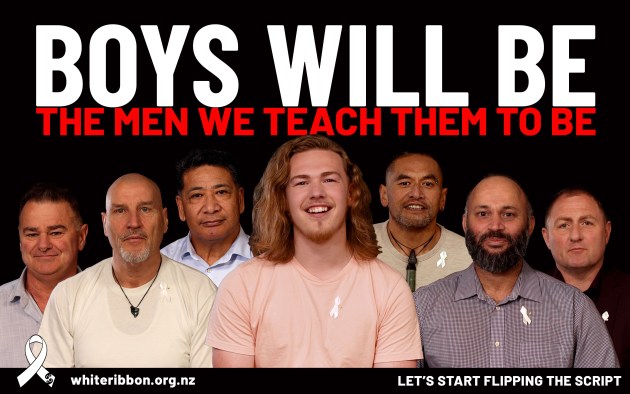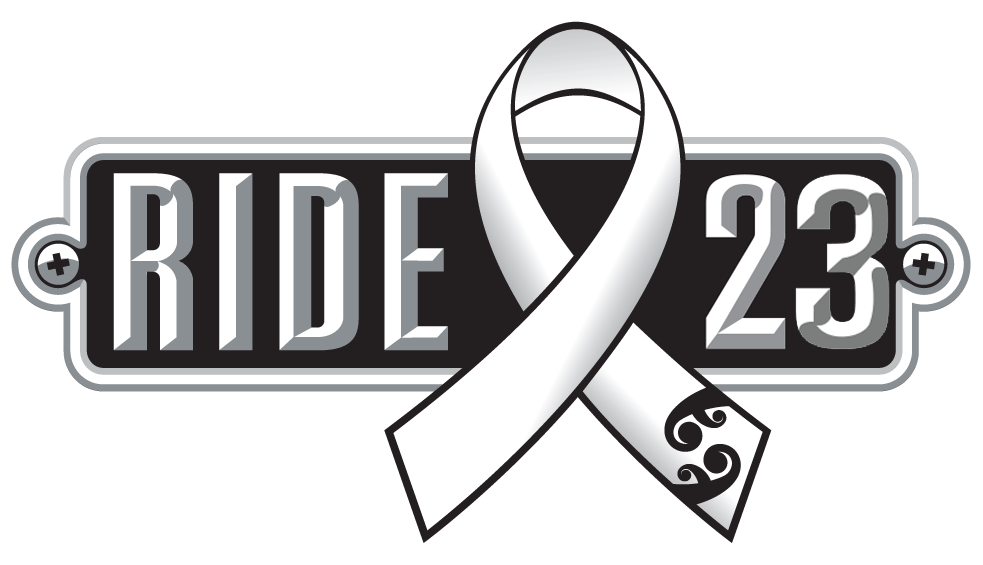Violence is taught – so who’s doing the teaching?
February 14, 2023
Last year, with your support, White Ribbon was able to put together the Boys will be Boys Respectful Campaign, which emphasises the role we need to play to ensure our young men grow up to be part of the solution – not the problem.
What makes this an urgent issue is that when we don’t take up that role of educating the next generation, their peers, or pornography, or influencers such as Andrew Tate become the loudest voices in the room, and there’s a clear link between believing in the kind of attitudes Tate personifies – and violence.
 |
Currently there’s significant discourse about the role influencers are playing in the lives of our youth. Andrew Tate is a prime example of someone who has a supersized platform. He’s wealthy, powerful, and many young men want to be like him. Some have signed up to his online The Hustler’s University 2.0 (currently offline) which promotes some pretty horrible attitudes while encouraging those same young men to enroll their mates and earn cash for bringing in new recruits.
 |
If you’re not familiar with Andrew Tate, he promotes a misogynistic soup of sexism, outdated ideas about men being in charge and dominant. His thoughts are cloaked in images of success and financial wealth and power, which often appeals to young men.
He says women belong in the home, can’t drive, and are a man’s property. He talks about slapping and choking women, doesn’t believe in depression and is openly homophobic.
He has said that rape victims must “bear responsibility” for the attacks on them, and openly dates women aged 18–19 because he can “make an imprint” on them, according to videos posted online.
He emphasizes the importance of material possessions while devaluing human relationships.
Recently, audio has been leaked of a voice note he allegedly recorded and sent to one of the women he has been accused of raping. This audio comes with a trigger warning, and the views on the video clip are from The Hill presenters in America and are not White Ribbon’s.
 |
While the good news is that Tate has been detained since December by the Romanian Police as they investigate allegations of rape and trafficking, men just like him with harmful attitudes are still targeting young men, and their messages are still being absorbed by our youth.
That’s why White Ribbon has had a focus on promoting Healthy Masculinity and Respectful Relationships, because the knowledge and understanding of these concepts is a protection against violence, and they provide a healthy framework for young men to find their own way.
Understanding Respectful Relationships and Healthy Masculinity gives them the skills and knowledge to know what a realistic and rewarding relationship looks like, as opposed to the controlling and shallow manipulation promoted by the Andrew Tates of this world.
Are we winning the battle?
I don’t think so. There simply isn’t enough government funding going into this aspect of violence prevention. In fact, only 1.8% of the governments family violence budget is spent on prevention. Adding to the problem, not enough men or adults are standing up and saying let’s have these difficult conversations – which is why one of the tag lines from our November campaign is, boys become the men we teach them to be. Unfortunately, it seems too often we’re leaving it up to others to be the teachers.
Anecdotal evidence suggests that only 10% to 20% of secondary school students have had a conversation in their homes about healthy relationships, sex and sexuality. Compounding that silence from parents, secondary school sex education is far from compulsory (or consistent) in New Zealand. That means it’s quite possible our tamariki are slipping through their teen years without appropriate mentoring and knowledge.
Alongside the Andrew Tates of this world, another influence can be pornography which can reflect and amplify misogyny. The Chief Censor’s 2018 NZ Youth and Porn Study found 1 in 4 young people saw porn before the age of 12, with 71% inadvertently viewing it. 69% have seen violence or aggression, and 72% have seen non-consensual activity. As one 15-year-old male wrote, “some porn is brutal, violent and degrading to women…it can lead you to believe that this is how you treat a woman.” That view of the dangers of pornography is widely held by many professionals.
A 2019 content-analysis looking at 200 popular porn clips indicated that 35% of porn showed coercive behaviour, and 46% had incestual themes. The analysis noted that aggression is almost always aimed at females, and they most often respond with pleasure in the videos.
The potential harms and impacts that pornography can have include:
- incorrect sexual attitudes and beliefs
- poor real life sex outcomes
- poor mental health outcomes
- inappropriate and sexually aggressive behaviours
- compulsive pornography usage
 |
In my view, both pornography and influencers such as Mr Tate are products and reflections of a much larger pattern of misogyny. Our advice is that education is the best protection against your children believing in sexist and harmful attitudes, and then potentially acting that way towards their partners.
What can we do?
As the grownups in the room we need to have discussions with our young people about what Respectful Relationships look like, and what Healthy Masculinity looks like.
It’s worth noting that if this framework doesn’t fit your family because your child is challenging what were perceived as gender norms, have a read of Kids and Gender Toolbox and then come back to the other free resources such as Raising Boys who Respect and Respectful Sexual Relationships. You can find all these resources here.
 |
 |
 |
Parents and teachers aren’t born experts on these subjects, nor are our own relationships perfect, so it’s a great idea to read the free material we provide, or watch the video below.
The most important advice is don’t pretend to be the expert, or talk down to your kids. Just let them know you want to have these kinds of chats with them. Why – because it’s your role as a parent/caregiver/coach to ensure they understand what a real and respectful relationship and sexual relationship looks like – as opposed to the unrealistic and sometimes harmful ideas promoted by pornography, or the likes of Tate.
 |
And if you’re still struggling with the, ‘why do I have to do this?’ question, last week White Ribbon received an email from a student alerting us to a female school dean telling the young men (which included her boyfriend), that if she sees one of them cry in front of her, she won’t care because ‘they’re not being real men’.
That’s just a variation of the warped and #outdated masculinity that Andrew Tate is promoting. So please, challenge the #outdated, and let’s have the conversation with our young men and women.
Rob McCann
White Ribbon Manager
Helpful videos that relate to these subjects, graphics can be downloaded from here.
| Talk with young men about respectful relationships and porn | Call people in to create real change |
| Talk with young men about breaking out of the man box | Having trouble understanding consent, check out the cup of tea video |
Other Interesting articles about Andrew Tate:
The lessons Andrew Tate doesn’t want you to learn about talking with young men
by White Ribbon Ambassador Richie Hardcore on Stuff
Andrew Tate: research has long shown how feminist progress is always followed by a misogynistic backlash
Lisa Sugiura of the University of Portsmouth
Men are embracing ‘positive masculinity’ and say it’s working – despite the backlash
Wendy Tuohy of The Sydney Morning Herald
Inside the violent, misogynistic world of TikTok’s new star, Andrew Tate
Shanti Das of The Guardian
Andrew Tate: The ‘violent’ and viral TikTok star who has domestic violence campaigners worried
Michelle Elias of The Feed
























 This White Ribbon Day (November 25th), let’s prevent men’s violence towards women by focusing on teaching and role modeling ‘Healthy Masculinity’ and ‘Respectful Relationships’ for our young men.
This White Ribbon Day (November 25th), let’s prevent men’s violence towards women by focusing on teaching and role modeling ‘Healthy Masculinity’ and ‘Respectful Relationships’ for our young men.




 “Lesley Elliott was tenacious, intelligent and wanted to make sure that no mother would go through her experience of losing a daughter to violence,” says Judge Peter Boshier, White Ribbon Patron.
“Lesley Elliott was tenacious, intelligent and wanted to make sure that no mother would go through her experience of losing a daughter to violence,” says Judge Peter Boshier, White Ribbon Patron. Pet Refuge is standing in solidarity with White Ribbon against violence towards Women.
Pet Refuge is standing in solidarity with White Ribbon against violence towards Women.








You must be logged in to post a comment.